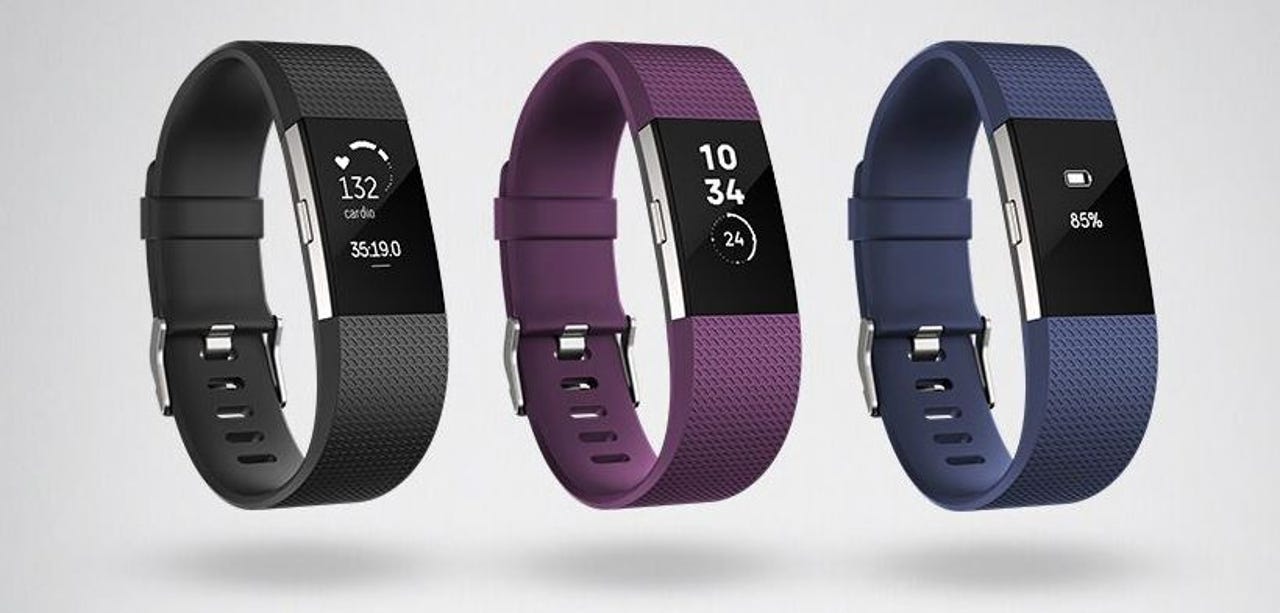First look: the Fitbit Charge 2 is a wearable fitness band with a great smartphone app


The bad news is that my Microsoft Band 2 has died a painful death: despite being only 18 months old, the band has split and the battery won't recharge. The good news is that I've just replaced it with a Fitbit Charge 2, picked up on Amazon Prime Day for around half the price: £88.39 (£64.49 plus £12.90 VAT) compared with the £169.99 I paid for my Band 2. I'm hoping this one will last longer.....
The bad news is that the Fitbit Charge 2's small monochrome screen is no match for the Microsoft Band 2's delightful AMOLED color display, or for the user interface that made it such a pleasure to use. The good news is that the Charge 2 provides better sleep and weight tracking - two of my main uses - and has a vastly superior smartphone app. (In both cases, I only used the apps on Android and Windows 10.)
For example, Fitbit's app shows how your actual sleep patterns match your target hours, and adds a trend-line for weight tracking.
There's nothing to choose in terms of comfort: I had no problems wearing both bands all the time. However, the Charge 2's standard strap is fiddly to remove, and I will probably try one of the alternatives. This is possible because the Fitbit is a self-contained unit like, say, an Apple Watch. The Band 2's strap is integrated and unremovable, because of the design decision to put the charger connection at the end of the band, instead of integrating it into the core unit.
The Charge 2 wins on battery life, which reflects its smaller, simpler, monochrome display. The Band 2 needed charging every other day. The Charge 2 goes five whole days - or slightly more - on a single charge.
The dashboard on Fitbit's Android app provides easy access to well-presented data displays.
The Band 2 wins hugely on notifications. The Charge 2 can vibrate briefly when you get a call, text or calendar event notification. After that, you have a minute to check it before it disappears, and it only shows the first 40 characters. It's also somewhat tedious to set up notifications, and I suspect many users won't bother.
Both the Band 2 and the Charge 2 include heart-rate monitors. I can't say which of them is more accurate, only that the Charge 2 says my resting heart rate is higher than the Band 2 - typically 69 rather than 62. (Around 53 is typical for my age.)
The Charge 2 is slightly less useful as a wristwatch. Both bands are supposed to turn on the display when you twist your wrist to check the time. The Band 2 always worked and the Charge 2 doesn't. (Mind you, it worked every time I tested it while writing this paragraph. Maybe it has an emergent AI... )
And as mentioned, the Charge 2 is much better for sleep tracking: it seems more accurate, and the app offers many more useful data displays.
The Charge 2 doesn't provide the Band 2's option to manually turn sleep tracking on and off, but the automatic detection seems to work perfectly. Unlike the Band 2, it hasn't once registered a TV session as "sleep". But perhaps it goes a little too far in the other direction.
The Band 2 is far too quick to register that you're asleep, typically within three or four minutes. It also claimed I didn't wake up in the night, even when I remember being awake enough to check the time. By contrast, the Charge 2 claims I keep waking up, even if I'm sure I was fast asleep.
On one night, for example, the Charge 2 reckons I woke up a dozen times and spent 27 minutes awake. Despite Fitbit's disclaimer, I think I'd have noticed. Either way, I appear to be performing fairly well. Fitbit gives a benchmark range of 15-31 per cent awake time for men my age and I'm averaging 9 per cent.
The Charge 2 also reported 2 hours 25 minutes of REM sleep, 3 hours 13 minutes of Light sleep, and 1 hour 5 minutes of Deep sleep that night. Whether this means anything is open to argument, but at least the benchmarks assure me I'm getting more sleep - and slightly more deep sleep - than average.
The numbers you get from fitness bands may be of little practical use, but the benchmark comparisons are somewhat reassuring. If my numbers were radically different from other men of my age, I'd probably consult my doctor...
As I said in my Microsoft Band 2 review, fitness bands are gamification devices, not medical grade monitoring products. They're a way of changing your behavior by setting goals and trying to beat them.
From this point of view, both bands have been a modest success. I'm getting more sleep, and I've lost a couple of kilos. The one area where I've failed is in doing a healthy amount of walking. In fact, I reduced my Charge 2 target from 5,000 steps a day to 3.500 just so I could see more wins than losses. Still, if taking a pointless walk around the block will earn me a star then I'll do it, so even failing is better than nothing.
All round, the Fitbit Charge 2 seems like a good product at a reasonable price. I'll miss the Surface Band 2, but I no longer think I'd buy a Band 3 if Microsoft changed its mind about making one. The device might be better, but it would have to improve the app dramatically to win me back.